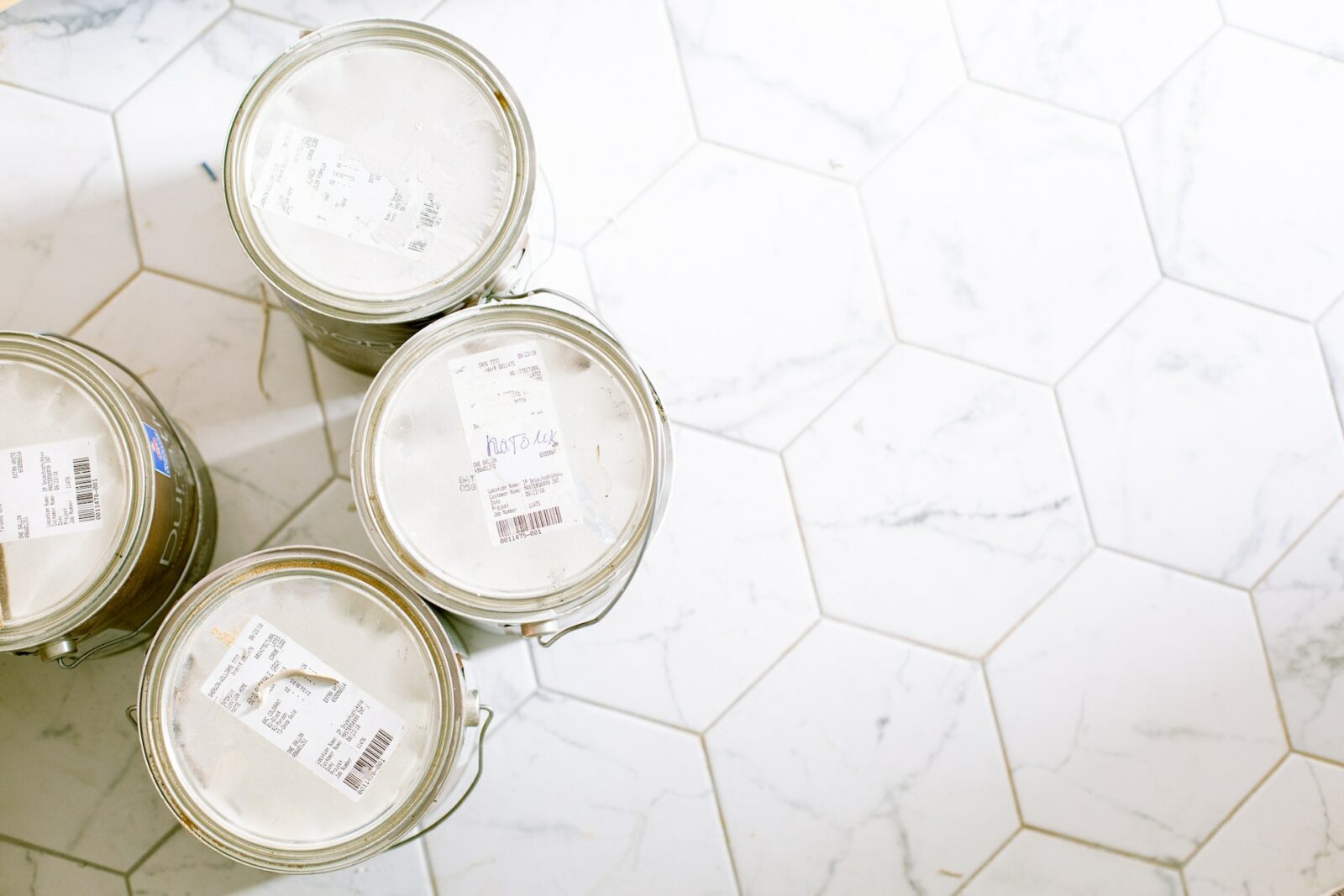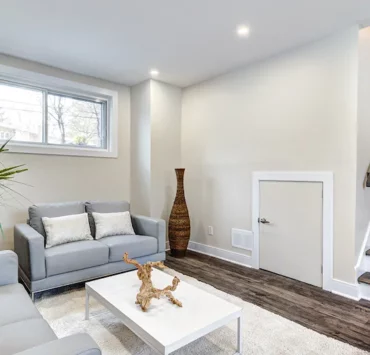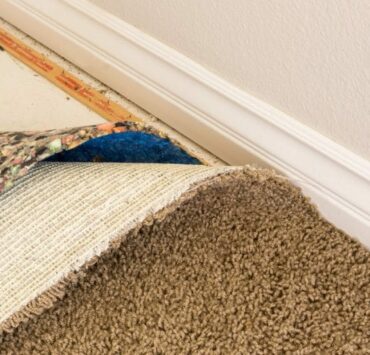Painting your basement floor can make all the difference between a finished and unfinished looking basement. As the final top layer to your floor, basement floor paint is needed both on an aesthetic and functional level.
This article will take you through the in’s and out’s of basement floor paint such as its benefits, and cost.
[ez-toc]Why You Should Paint A Basement Floor
Painting your basement floor is part of the basement finishing process. Apart from turning an unsightly concrete floor into a polished looking one, a layer of paint protects it from moisture seeping through. This in turn reduces the occurrence of mold, mildew and bacteria buildup.
The concrete layer of a basement floor may be sturdy, but it’s also porous. Exposed concrete is at risk of water damage, and given time, spills and general humidity will give you a damaged concrete floor. Apart from its aesthetic benefit, floor paint is especially designed to give a waterproof top layer that will protect your space.
Painting your basement floor is a safety issue as well. Exposed concrete is more likely to chip and crack, becoming a trip hazard. A dusty floor can be slippery too. The floor becomes less slippery and less prone to breakage with a layer of paint.
Having a proper floor is essential for basement remodeling. It enhances its appearance and increases your home’s overall value. If you’ve got an exposed concrete basement floor, take this as your sign to give it that much-needed essential paint layer.
How To Choose Paint For A Basement Floor
When it comes to basement floor paint, keep in mind that the paint isn’t just for aesthetic purposes. The paint needs to act as a waterproof layer of protection. This is why you can’t just select any product. You need one specifically for floors.
The ideal paint for a basement floor is epoxy paint. Epoxy paint is more durable and meant to withstand physical and chemical damage. The finish hardens and cures, leaving you with a thicker layer of paint than ordinary floor paint.
With that said, you can opt for regular floor paint. It will also provide you a waterproof seal but it won’t last as long and won’t be as durable. Where epoxy paint will last you up to 10 years, you can expect to repaint your basement floor with regular floor paint every 4 years.
As an alternative if you do have it on hand, you can use regular paint for your basement and top it off with a waterproof sealant. This isn’t recommended as it requires more work and you may end up with subpar floor protection and durability.
Regardless of what type of basement floor paint you use, check the PSI rating. PSI, or pounds per square inch, refers to how many pounds of downward force the paint can withstand. A PSI between 2500 to 4500 is a good range to work with. Fortunately, there are many types of floor paint on the market, with a high PSI being one of the common features. For obvious reasons, choose your paint and PSI based on how you intend to use your space.
How To Prep And Paint A Basement Floor
Assess how your basement will be used and what type of activity your basement floor will be subjected to. This should help you decide whether regular floor paint or a more durable epoxy floor paint will do. Keep in mind that floor paint in general will provide a waterproof layer.
Once you’ve got your paint decided on, ensure that space is ready. It must be clean, dry, level, and free of cracks. Don’t paint concerned area if the surface isn’t ready. Sand down or fill in uneven areas and fill in cracks with a concrete repair compound. If you’ve got wet concrete, give it a full 24 hours to dry out. Use a dehumidifier or a fan to speed up the process. The last thing you want to do is seal moisture in your concrete with a layer of paint.
When your space is ready, proceed to protect your walls and other areas you don’t want paint to stain. Line your basement accordingly with painters tape before painting.
Once you have your floor prepped and your basement protected, you can now paint your floors. Follow the product directions for mixing and applying the paint.
For regular floor paint, allow a full 24 hours for it to dry, and 36 hours for epoxy paint.
Basement Floor Paint Costs
You can hire contractors if you’d like to save yourself the trouble of sourcing paint materials and painting your basement floor. For the average-sized 1000 square foot basement, expect to shell out $2500 to $7000 for a professional to paint it. This includes both the labor and the paint materials.
Basement floor paint is a great way to put your final and personal touches on your basement. When done right, you don’t have to worry as much about damaging, cleaning or maintaining your floors as the basement floor paint does this for you. Paint over that uninspiring concrete gray and watch your basement instantly transform and become that much better looking.








